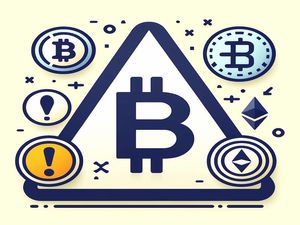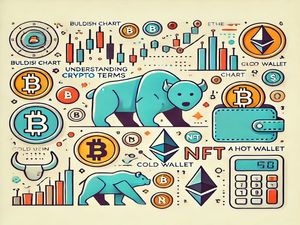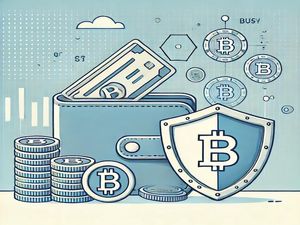What is Blockchain? #
Imagine you and a friend keep a shared notebook where you record all financial transactions between you two. Every time someone borrows or repays money, the transaction is noted, and everyone confirms its accuracy before it's permanently recorded. This notebook becomes a trusted ledger that can't be altered without redoing all subsequent entries.
In the digital world, blockchain functions similarly. It's a decentralized ledger where transactions are recorded in "blocks" and linked together in a "chain." Once a transaction is added to the blockchain, it's immutable, ensuring transparency and preventing tampering. This technology underpins cryptocurrencies, including Bitcoin.
What is Bitcoin? #
Bitcoin, created by Satoshi Nakamoto in 2009, is the first and most renowned cryptocurrency. It operates on blockchain technology, which makes it decentralized and secure. Unlike traditional currencies issued by governments, Bitcoin is maintained by a network of computers that validate and record transactions on the blockchain.
How to Buy Cryptocurrency #
To enter the cryptocurrency market, you need to buy crypto through exchanges. These online platforms allow you to trade cryptocurrencies for fiat money like dollars or euros. Examples include Coinbase, Binance, and Kraken. When choosing an exchange, prioritize security and opt for those that are trustworthy and registered.
Crypto Wallets: Hot vs. Cold #
Once you've acquired cryptocurrency, you need a way to store it. This is where crypto wallets come in. There are two main types:
- Cold Wallets: These are physical devices that store cryptocurrency offline, offering a high level of security against cyber threats and malware. Examples include hardware wallets like Ledger and Trezor.
- Hot Wallets: These are software solutions connected to the internet, providing easy access to your cryptocurrency for transactions. They are convenient but less secure compared to cold wallets. Examples include software wallets like Exodus and Trust Wallet.
Cryptocurrency Networks #
Popular networks like Ethereum and Solana enable the execution and recording of transactions for various digital assets. Each network has its unique features and purposes:
- Ethereum: Known for its smart contract functionality, allowing for complex financial transactions and decentralized applications.
- Solana: Offers high-speed transactions and low fees, making it suitable for scalable projects.
Keep in mind that blockchain networks are not interoperable. For instance, Bitcoin cannot be transferred to the Ethereum network without specific protocols or services.
Tracking Cryptocurrency Prices #
To stay updated on cryptocurrency prices and trends, use platforms like CoinMarketCap, Binance, and TradingView. These resources provide real-time data on prices, market capitalization, trading volumes, and more.
Next Steps #
Now that you have a foundational understanding of cryptocurrency, the next step is to find a niche that aligns with your interests and goals. Explore various strategies for earning, whether through trading, investing, or creating crypto-related content.











